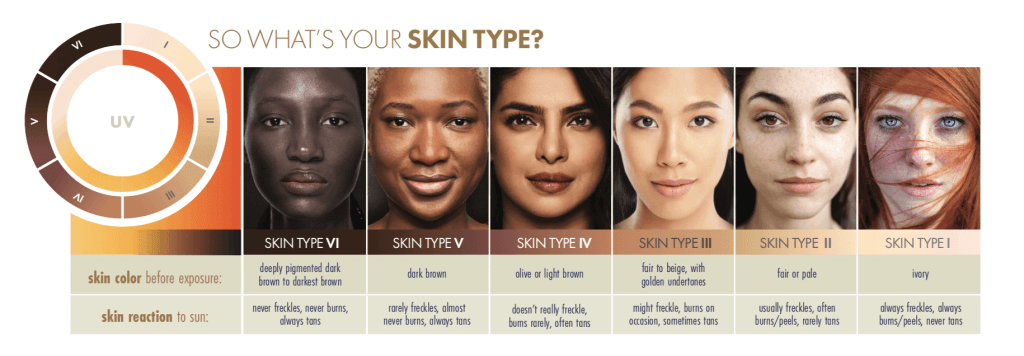While a perfect skin-care routine will work for you year round, there are some important steps you should keep top of mind as the weather gets warmer.
Warm weather brings with it skin-care challenges and questions like, "Do I really have to moisturise even if it's hot and my face feels oily?” (btw - the answer is, Yes!)
"A solid routine should be followed for all seasons and all climates," says Natalie Abouchar (NP) Nurse Practitioner and Director of Privée Clinic. "Although there are a couple of changes I recommend when transitioning from winter to summer. Here are my Top Summer Skin Tips”
Top Summer Skin Tips
- SPF
Don't leave home without it, it’s the most important. A broad-spectrum sunscreen SPF 30 or higher on all skin that’s exposed to the sun. Don't forget about your hands, feet, ears, and lips. Our favourite facial SPF at the clinic is Mesoprotech Melan 130, tinted and perfect to protect against pigmentation.
It’s also important that sunscreen is re-applied every couple of hours, so make sure to pack extra sunscreen for those longer summer days outdoors (at Bondi Beach).
- Use lighter weight skincare products
In the Summer, I generally remind all my clients that their skincare routine should be a little more lightweight. Consider combining your sunscreen and moisturiser for a lighter weight alternative to avoid the clogging of pores on your face. Also, the heat and humidity means you can swap out your heavier cleanser in favour of a foaming option. For example, our favourite cleanser at the Clinic is the Advanced Cleanser from Dermaceutic.
- Vitamin C Cream
Vitamin C is great to use year-round, but super important in the summer. Vitamin C is proven to brighten and even your complexion as well as providing significant anti-ageing benefits. It can also help with collagen production. Collagen is an essential protein required for healthy youthful looking skin. Put a few drops on your skin between cleansing and moisturiser. My favourite Vitamin C product is CE Ferulic which is a potent antioxidant, pigment inhibitor and skin brightener.
- Exfoliate
Exfoliation is a necessary step to maintaining that dewy and healthy glowing skin. It's especially helpful if you suffer from acne, blocked pores or pigmentation. Chemical exfoliants work best; look for products such as Salicylic, Mandelic, Kojic and Azelaic acid. I recommend starting slow by using them 3 times per week and working up to using them every night. The Radiance brightening cream by Dermaceutic is a good quality exfoliator which has a cocktail of different acids making it great for skin brightening, reducing pigment spots for a unified and radiant complexion.
- Cut down your showers and bath time
Having long showers in water that is too hot in Summer can lead to over-drying leading to inflammation, even eczema. So keep those showers and baths shorter, and the water temperature warm to cool. Plus it saves water!
- Stay in the shade
Wear sun-protective clothing, wide-brim hats and sunglasses. Expose as little of your body as possible to direct sunlight. Consider wearing long sleeved shirts where appropriate, sit underneath a large umbrella and avoid the midday sun if you can.
What is my skin type?
Everyone’s skin is different and reacts differently to the sun. Ever wondered what type of skin you have? Nobody has the exact same skin as you. But you still fall into one of the major categories. Once you work out how to characterise your skin, you can choose the correct skincare.
The Fitzpatrick scale is a recognized tool for dermatological research into skin types. It was developed as a way to estimate the response of different types of skin to ultraviolet light (UV). This scale places the skin in one of six categories, based on how much melanin is present. Type 1 being pale skin that burns without tanning & Type 6 being darker skin that never burns and only tans.
Note that these 6 categories are just a guide, as some individuals may fall between two.

What does the Fitzpatrick scale mean for my skin?
- Type 1 and 2
Those with lighter Type 1 & 2 skin (often redheads and fair-skinned individuals) should always be wearing a broad spectrum SPF sunscreen and avoid the sun as much as possible. This is because lighter skin has less melanin, making it more difficult to naturally block harmful rays from the sun. The ability to tan is almost impossible and therefore these skin types are much more sensitive and are at higher risk for skin cancer.
- Type 5 and 6
An individual with a level 5 or 6 Fitzpatrick skin type would typically be someone with Indian or African heritage. While it is still recommended to use sun protection at all times, these skin types have a much lower risk of developing skin cancers & photo-aging due to the high levels of melanin and the decrease in sensitivity to the sun’s UV rays.
The type of skin you have determines which treatments and products will work best on your skin, and what you should be avoiding. Depending on what Fitzpatrick skin type you are, will determine which medical-grade skin treatments are appropriate. Because those with darker skin types are more able to produce pigment, any skin or pigmentation treatment that uses high levels of heat to induce a response may be risky. For example, certain lasers are not recommended for Fitz skin types 4-6 because the risk of post-inflammatory hyperpigmentation (PIH) is increased. PIH results in the skin producing rebound pigment in response to trauma such as heat. Often this will happen months after the initial trauma. Patients with darker skin types will often need to prepare their skin on lightening agents prior to undergoing more intense treatments with products called Tyrosinase Inhibitors. The Radiance brightening cream or the Mela Cream from Dermaceutic are great skin prepping options.
Common skin type categories
Beyond the Fitzpatrick Scale, there are 4 common categories for the type of skin you have. Oily, Dry, Combination and Normal. These are most commonly used by skincare and cosmetic companies.
To determine which of these you have, wash your face, don’t apply anything to the skin and wait 2 hours. Your skin may display some of these signs:
Oily Skin - The skin remains oily and shiny all over. Skin tends to be more acne-prone.
Dry Skin - Rough and flaky on the face. The skin feels tight.
Combination - Your t-zone is oily or shiny, but there is some tightness and dryness around the cheeks/jawline
Normal - The skin feels smooth with no excessive dryness or shine.
Depending on where you fall in this category, will guide product choices and the active ingredients which will be most suitable for your skin.
If you would like further information and to make an appointment with Privée Clinic, please click here to book an appointment or call (02) 8041 5725. The clinic specializes in anti-wrinkle injections, dermal fillers, regenerative blood therapy, and medical-grade skin treatments and cosmeceuticals. What sets the clinic apart is its dedication to providing personalised treatment plans for each client that caters to their unique requirements.
In 2010, Natalie Abouchar established Privée Clinic in Bondi Junction. Today, it has become a leading non-surgical anti-aging medical clinic in Sydney's Eastern Suburbs. Natalie, a Nurse Practitioner with over 20 years of experience, transitioned into the cosmetic medicine field in 2008.
To book an appointment, click here or call (02) 8041 5725.

No comments.